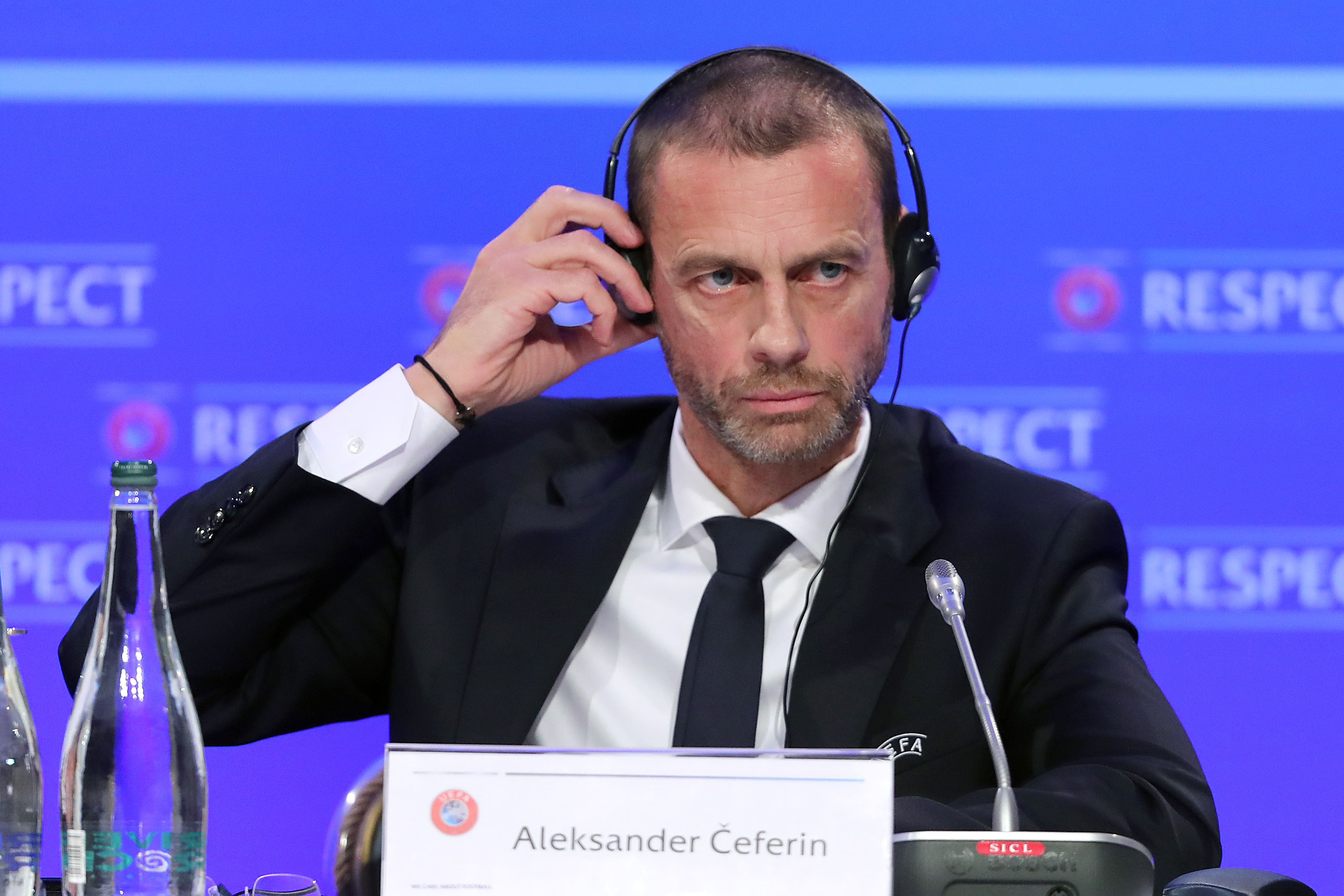UEFA sets up new cost controls group amid Aleksander Ceferin salary cap comments
Ceferin said a limit on the amount a club can spend on player wages was “the solution” to ensuring competitive balance.

Your support helps us to tell the story
From reproductive rights to climate change to Big Tech, The Independent is on the ground when the story is developing. Whether it's investigating the financials of Elon Musk's pro-Trump PAC or producing our latest documentary, 'The A Word', which shines a light on the American women fighting for reproductive rights, we know how important it is to parse out the facts from the messaging.
At such a critical moment in US history, we need reporters on the ground. Your donation allows us to keep sending journalists to speak to both sides of the story.
The Independent is trusted by Americans across the entire political spectrum. And unlike many other quality news outlets, we choose not to lock Americans out of our reporting and analysis with paywalls. We believe quality journalism should be available to everyone, paid for by those who can afford it.
Your support makes all the difference.UEFA has set up a group to look at new cost controls in European football, in the week its president Aleksander Ceferin raised the possibility of a continent-wide salary cap.
Ceferin told American news outlet Men In Blazers that limiting the amount a club can spend on player wages was “the solution” to protecting competitive balance, and said the issue was already under discussion with clubs.
His comments were criticised by Professional Footballers’ Association chief executive Maheta Molango, who told the PA news agency players would “rightly be angry”, adding: “Football’s leaders are quickly going to create a real problem if they continue to treat players like this.”
An “inclusive” working group, featuring representation from world players’ union FIFPRO, has been appointed by UEFA’s club licensing committee.
UEFA said the new group would “explore new ways to enhance the long-term sustainability and competitiveness of European football”.
As well as FIFPRO, the group will also feature representatives from 11 national associations, the European Club Association, European Leagues and Football Supporters Europe.
Any salary cap would almost certainly need to be the result of a collective bargaining agreement in order for it to adhere to European law.
Even then, a senior executive at one of Europe’s big five leagues contacted by PA on Friday was sceptical that such a cap could be applied, given the wide variance in taxation levels across the continent.
The group will look at those tax systems in order “to develop effective and equitable cost control mechanisms”, UEFA said.
“It will also examine the feasibility of specific measures that would supplement the existing squad cost rule, with the aim to enhance cost control, promote the development of youth players and foster a better redistribution of resources,” UEFA added.
Ceferin said earlier this week: “In the future, we have to seriously think about a salary cap. If the budgets go sky-high then our competitive balance is a problem.
“It’s not about the owners, it’s about the value of the competition, because if five clubs will always win then it doesn’t make sense any more.
“I already spoke with some people from the European Commission – we are trying to push that.
“But it has to be a collective agreement – every league and UEFA. Because if we do it and the other leagues don’t, then it doesn’t make sense.”
A senior executive within European club football told PA on Monday he anticipated any cap would have to be set at a level higher than the most expensive wage bill currently in European football to avoid clubs immediately being in breach, but set at a ceiling that would help to rein in costs in the future and then be adjusted over time.
UEFA’s new Financial Sustainability Regulations (FSR) were approved 12 months ago and replaced the Financial Fair Play system.
One key aspect of FSR is the squad cost ratio, which links a club’s spending in areas such as player wages and transfer fees to turnover. Next season this spending must not exceed 90 per cent of turnover, dropping to a 70 per cent limit by 2025-26 and thereafter. The squad cost ratio effectively acts as a ‘soft’ cap on what clubs can spend.
The Premier League is in the process of updating its financial controls and these are likely to be in-line with UEFA’s FSR.